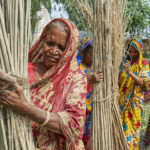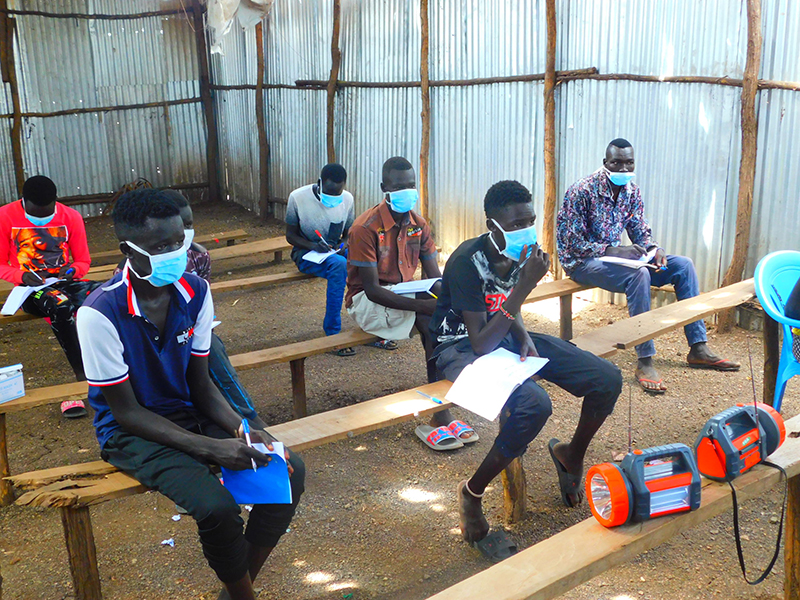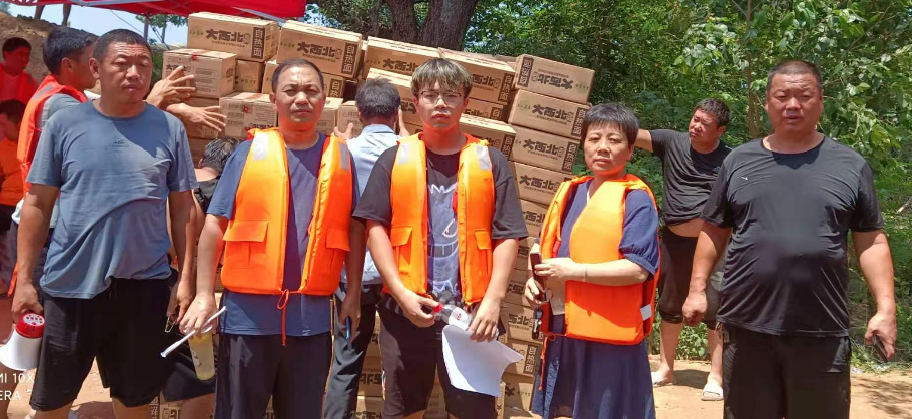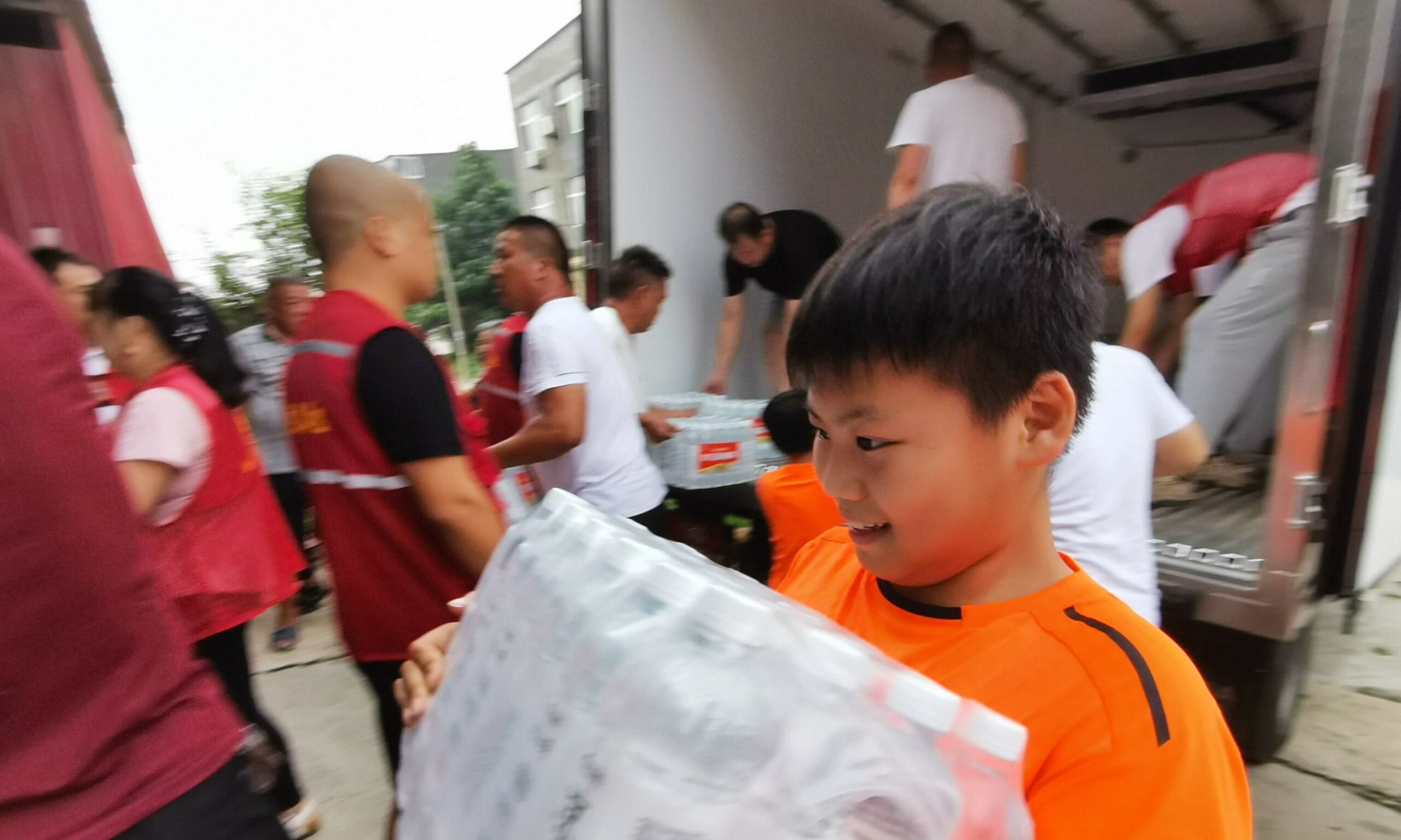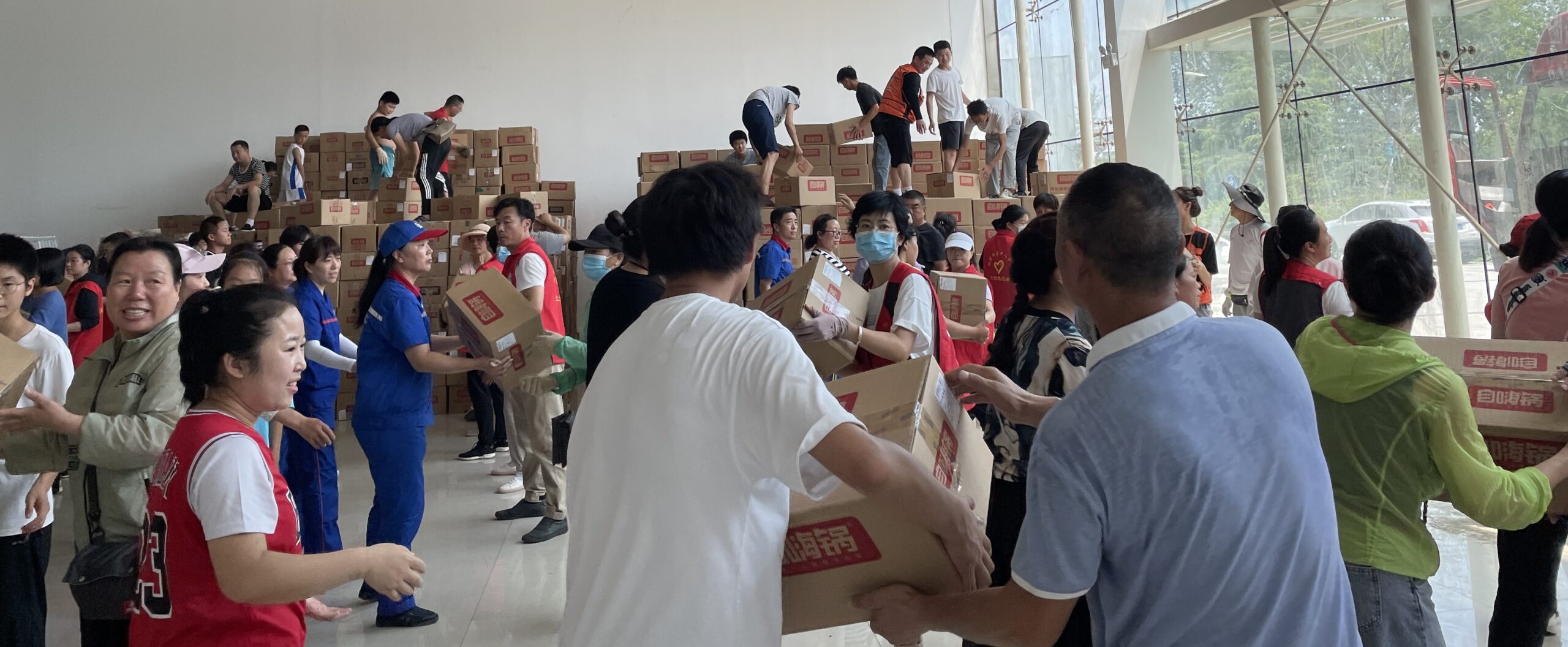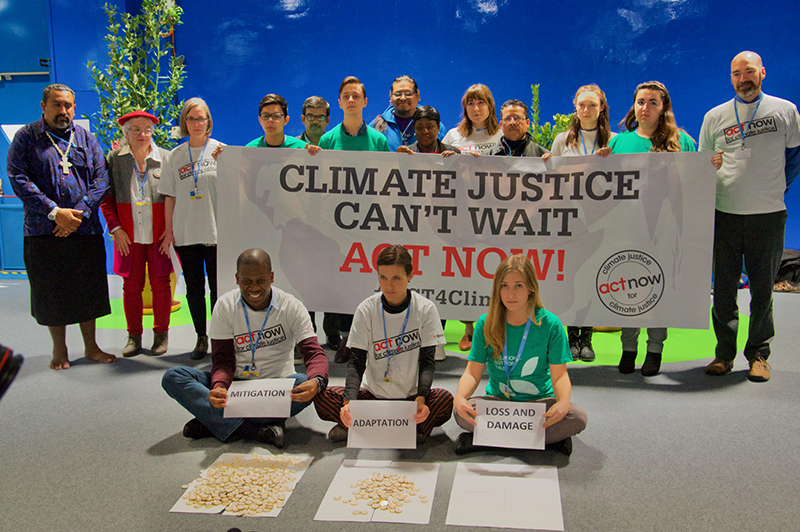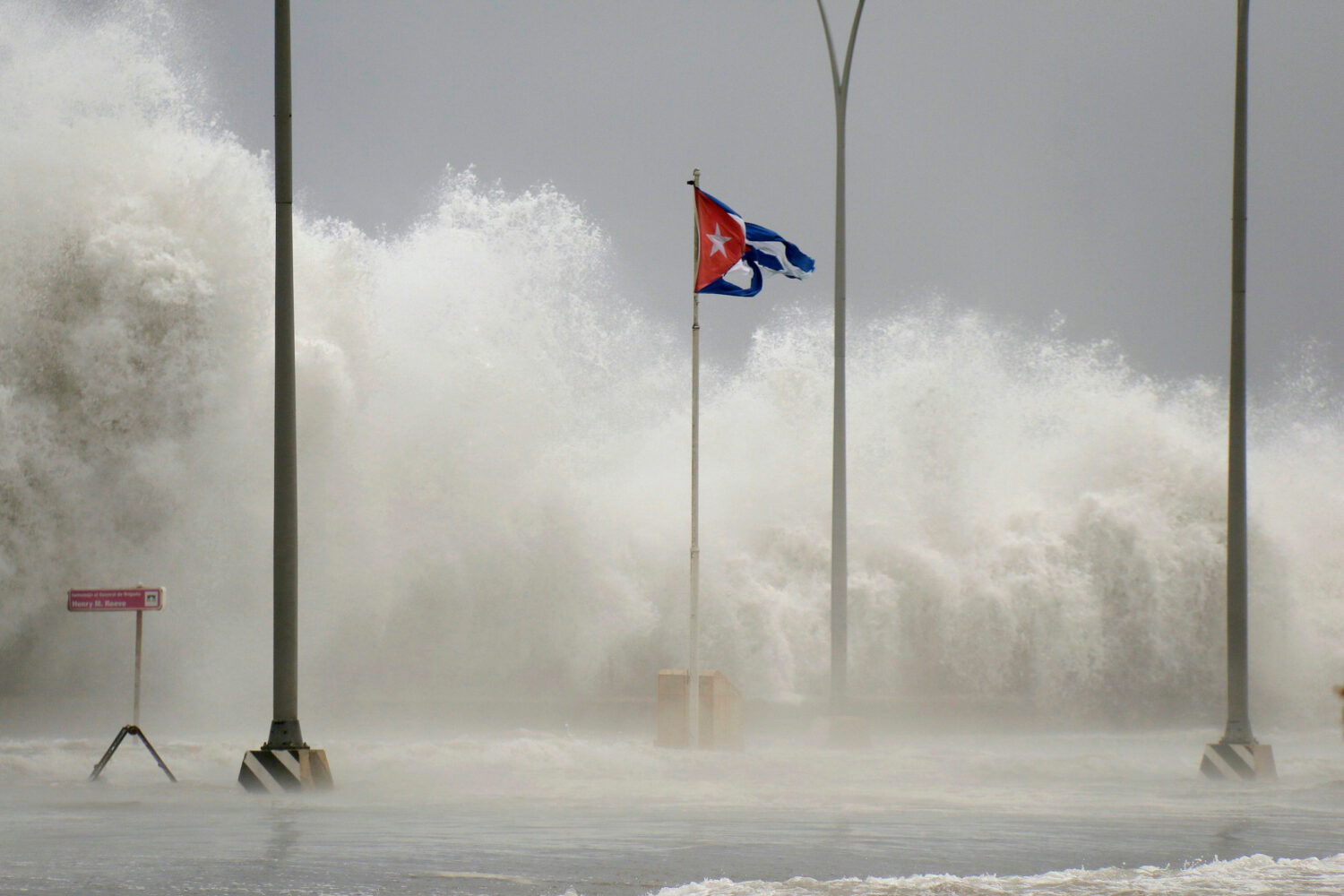EMBARGOED until 7:30pm 2/1/11
Press release: Faith in Action for Climate Justice – event 2/11/21
People of faith gather in Glasgow to demand world leaders deliver climate justice at COP26.
On 2nd November, representatives of faith movements from around the world gathered to present their demands for climate justice at the start of COP26.
The event was held at 19:30 GMT at St George’s Tron Church, Buchanan Street, G1 2JX and streamed online.
More than 150,000 actions, including petition signatures and prayer boats, were gathered together alongside statements from religious leaders and youth. This event brought together multi-faith representatives to make collective demands of political leaders at COP26.
These demands include calling on governments to:
- Put in place legislation and policies that will limit warming to 1.5C and achieve global net zero emissions;
- Deliver on existing climate finance commitments without delay and provide new and additional finance for people already experiencing the worst impacts of climate change;
- Shifting investment from fossil fuels to sustainable renewable energy;
- Reaffirm and respect obligations to protect and respect human rights, including in particular the rights of Indigenous peoples, women and local communities in climate action;
- Recognize human-induced climate change and biodiversity as part of one and the same crisis and implement solutions to climate change based on locally-led ecosystem preservation and restoration and protection of biodiversity;
- Listen to those on the front line of the crisis and make sure their voices are at the heart of climate talks and decision making.
Quotes
Young Christian Climate Network:
‘The climate crisis is both a symptom and a cause of global injustice, with the world’s poorest paying the heaviest price for the actions of the richest. YCCN is calling on the UK government to put people before bank balances and use its role as hosts of COP26 to push for urgent action on climate finance.’ – Jen Morris, YCCN
Christian Aid
“As Glasgow welcomes COP26, the decisions by world leaders will define the shape and sustainability of the dear green place we all share. We in the faith community stand together against the climate crisis, demanding ambitious action and praying for lasting change.” Rev. Sally Foster-Fulton, Head of Nations and Church Relations, Christian Aid
ACT Alliance
“In 2021 the world is faced with two global emergencies – COVID-19 and the climate crisis. Both must be addressed urgently and with justice.” Rudelmar Bueno de Faria, General Secretary, ACT Alliance.
The Lutheran World Federation
“We need bold action to ensure climate justice. As people of faith, we call on all governments to take decisive steps at COP26 to avert further climate catastrophes and human suffering.” Rev. Anne Burghardt, General Secretary of The Lutheran World Federation
Living Laudato Si’ Philippines
“Eight years after the onslaught of Typhoon Haiyan in the Philippines, more than a thousand people are still missing. Year after year thenceforth, the intensity of extreme weather conditions is increasing. COP26 is an opportunity to address losses and damages, both for humanity and ecosystems. Climate action is not only about common but differentiated responsibilities but a collective conscience and uncompromised moral imperative towards intergenerational justice, equity and common good.” – Rodne R. Galicha, Executive Director, Living Laudato Si’ Philippines
Laudato Si Movement
“COP26 is a ‘benchmark session to heed to the urgent, radical and conscious action in response to the ecological crisis we are living in. It is without doubt that the need for bold actions from global leadership is paramount if we are to meet the 1.5 degree as per the Paris Agreement.” – Lorna Gold, Board Member, Laudato Si Movement
Renew Our World
“People in 6 continents have signed the Renew Our World Reset21 petition – we are united by our faith, our love of justice and our care for creation. My people, the Guna of Panama, are being hit now by the rising seas and changing climate, and we call on the world’s leaders to find the money they promised, cut the emissions they promised, and do what we do and take care of the world God made.” – Jocabed Solano, Founder, Indigenous Memory
Scottish Catholic International Aid Fund
“Faith groups from around the world have joined together in Glasgow to ask for immediate action to address the climate. We’re proud to add the voices of over 4,000 SCIAF supporters to this call. The poorest communities in the world have been hit hardest by the climate emergency. We’re calling for communities to be given financial support to adapt and recover from climate change, for those on the frontline of the climate emergency to be listened to, and for urgent action from world leaders to keep us within 1.5 degrees of global warming.” – Dr Geraldine Hill, Advocacy Manager, Scottish Catholic International Aid Fund
CAFOD
“Tens of thousands of Catholics have raised their voices alongside people from across faith communities to demand action at the COP. We hope and pray that the leaders in Glasgow listen to their calls, take the steps we need to keep temperature rises below the catastrophic 1.5C level and make sure the people hardest hit by the crisis are put at the heart of the talks.” Liam Finn, Campaigns Manager at Catholic aid agency CAFOD
Islamic Relief
“Islamic Relief is seeing the devastating impact that climate change is having on some of the poorest communities around the world. Floods, droughts and cyclones are destroying people’s lives. With 80 per cent of the world adhering to a faith, it is critical that faith communities come together and take a stand against climate change. As part of this, we are calling on the UK government to set up a specialised green fund for houses of worship of all faiths to support their transition to net zero emission by 2050.” Maria Zafar, Campaigns & Public Affairs Coordinator for Islamic Relief UK
GreenFaith
“As women of faith born in the global south, we’ve seen multinational corporations take advantage of our natural resources, bribe our governments, steal land from indigenous and small farmers. We know first-hand the human rights violations that accompany coal, oil, gas, and agribusiness expansion. We watch wealthy countries refusing to make good on the climate funding they promise. We see our own governments failing to enforce laws that should protect their own people. In the face of such hardship, faith sustains our communities. We will not stop until we see a world governed by compassion, love and justice.”
Rev. Neddy Astudillo, Nana Firman, Meryne Warah – GreenFaith
Anglican Communion Environmental Network
“Let justice roll down like rivers” At COP26 we call on the global community to prioritise the call for Climate justice. We call for a just transition from fossil fuels which not only contribute to climate change but also to environmental degradation, pollution of scarce water supplies and the abuse of the rights of rural and indigenous people. At COP26 the window of opportunity is narrowing to avert a bleak and barren future for the generations to come.”
Rev Dr Rachel Mash, Anglican Communion Environmental Network
Social media:
- Event #: #FaithActionCOP26
Photos
Photos from the event will be available here shortly after: https://www.flickr.com/photos/lutheranworld/albums/72157720100856227 please credit LWF
